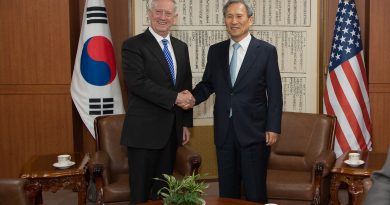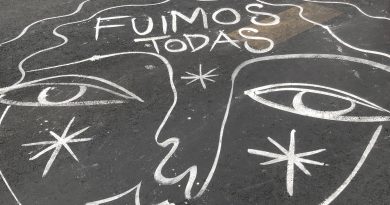Cuban Doctors Protest for U.S. Visas
By Gabriela Taveras
Staff Writer
Approximately 100 Cuban doctors remain stranded in Colombia and continue efforts to gain entry into the United States. The standstill proceeded their desertion of a medical mission in Venezuela. This culminated in protests on August 22 in a Columbian plaza located in Kennedy, a neighborhood that flourished in the 1960s as part of John F. Kennedy’s Alliance for Progress.
Although the overall situation has not been fully addressed, 20 of the Cuban doctors were granted provisional visas following the protests.
In an article from The New York Times, the healthcare workers fearfully claim that their visa requests, submitted under the auspices of a 2006 U.S. program tasked with attracting Cuba’s medical talent, are delayed due to U.S. President Barack Obama’s goal of normalizing relations with the Caribbean island.
This fear is exacerbated by ongoing concerns of mistreatment, commodity scarcity, rampant inflation and social unrest in Venezuela, which has led many residents to cross the border in hopes of a better life in other countries, mostly neighboring Colombia. Although conditions in the latter country are better, the cost of living is considerably higher and several escapees attest to having to beg in order to survive on a single meal a day. Cases such as Ailen Garcia’s, a 25 year old dentist who fled to Colombia with her husband, are not uncommon. She told The New York Times that she expected to receive her U.S. visa in a matter of weeks; instead, it has been over six months without any sort of news, all while paying $200 a month for a small room in Bogota and awaiting the birth of her first child.
It is estimated that upwards of 50,000 Cuban healthcare workers are employed by 66 nations as part of the 2006 program. Most of them have found jobs in Venezuela, which, in exchange, exports approximately 92,000 barrels of oil a day to Cuba with a worth of $3.2 billion a year.
In spite of the Cuban doctors’ concerns, Department of State spokesman John Kirby stated that there are no initiatives to shut down the project. This initiative was introduced by the George W. Bush administration in 2006, under the name, “Cuban Medical Professional Parole Program.” It allows Cuban medical professionals studying or working in a third country to request a U.S. visa.
Under this program, the Castro administration sends thousands of healthcare professionals on foreign missions. These men and women serve as part of Cuba’s “medical diplomacy,” a key characteristic of the country’s foreign policy, albeit on presumably low wages of $100 a month.
Furthermore, Colombia’s migration authorities calculated that 117 doctors are currently processing visa requests. It is stated that 720 arrived in 2015 alone and 603 were deported after exceeding the “90-day-safe-conduct”, which was granted by the Colombian government so that the doctors could solicit American visas.
Meanwhile, Cuban doctors are stuck in a migration limbo. However, it is not they who will be the greatest victims of this exodus. On the contrary, it is the people of Venezuela, of the very land they are leaving, who will continue to face unrestrained social injustices.


